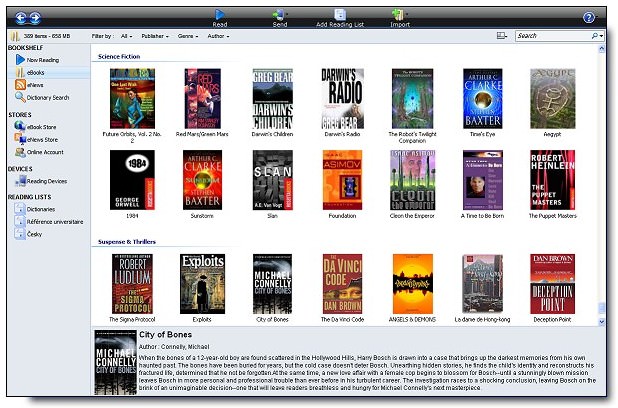
Ebooks are changing the way we view book ownership. The technology behind them leaves one with the feeling that they merely borrowing the books rather than truly owning it themselves. You are not allowed to resell any ebook you purchase, you can barely lend it out and you need specific instructions dictated to you on how you can use it for you own purposes.
Tim Spalding, creator of Librarything thinks that all of this will devalue books in general. “The process is gradual. Mental models change slower than technology. If the Kindle had debuted with an access-based ‘faucet’ model, it would have failed. Consumers would not have traded true ownership for a tethered, metered and monitored product. But we’ll get there soon enough, as each step away from ownership makes the next step more acceptable. Once you realise your Kindle book is not fully yours, you’ll accept it being mostly not yours. Google Ebooks are a further step away from ownership. Eventually you get to a faucet model, as music has done, either low-price (Netflix) or free (Pandora, YouTube).
“By itself, such changes might be culturally and economically neutral. Ownership of paper books wasn’t so much a consumer preference as a side effect of their physical nature, and law followed and solemnized that state of affairs. Maybe the faucet model will produce more readers, more reading, more good books, more paid authors, etc. Or maybe it will produce less. Who knows?”
Mr. Spalding believes that once the situation reaches this level piracy will seem like a more viable option for some. He went on to say,“Anyone with an internet connection can rapidly assemble a ‘library’ of books it would have once taken years to build – so why bother building one?” He thinks the eventual price drops wil make it more difficult for authors to sustain themselves from their writing.
“Music has it easy compared to writing. Musicians have always relied on other revenue sources. Performance is the big one, but merchandise and licensing matter too. Authors don’t have the same options. Dickens engineered a profitable reading tour of the United States, as new-model enthusiasts always point out. But how many authors could do that today? How many could fund themselves on t-shirt sales. And will anyone pay authors to read sentences from their novels over an Audi advertisement? The ringtone market holds limited prospects.”
Having an actual library feels more real to me than having a digital one. I can look at all of my books lined up on a shelf. I can touch them, hold them and even smell them. On the other hand my digital library sits on a hard drive barely noticeable. Sharing my collection with others is also a concern. Lending out a printed book is much easier than lending out an ebook. This comes right back to ownership. Don’t get me wrong, I love ebooks. I can purchase one online at lightning fast speed and I can carry dozens of them with me at a time when I travel. I can also easily take notes in an ebook without ‘defacing’ it.
I wouldn’t mind buying both versions of a book if the option was given to me. I would get the hardback as well as the digital version of a book and pay a little extra to do so. The filming industry has playing around with the model for some time now.
In this way publishers would be able to increase their revenue and customers would be able to maintain ownership of their purchase. I would also have more options for reading, storing and lending my collection.
I realize that this is my own opinion and not everyone will share it. For many people ownership of a book doesn’t really mean anything to them. Some just read out of boredom or to pass the time as they wait for a flight to some far off place. For them once they have used it for that period of time it has served its’ purpose and it no longer needed.
James Bridle of booktwo.org states: “Ebooks also introduce the possibilities of new behaviour: new ways or writing, reading, sharing, annotating and experiencing. We can only learn about and indulge these if we’re able to let go of some of our paper metaphors.”
Bridle, like Tim Spalding believes the publishers should change their approach. “For publishers, there are similar questions to the ones we’ve already been facing around DRM and text-to-speech. How much control over the text do you cede to the reader (or, rather: how much control do you attempt to take back through the new technology, a control you never really had with paper books)? As with these technologies, I think we’ll see that the benefits to publishers of more openness outweigh the somewhat nebulous fears.”
So maybe control is a better term to use here. If readers felt the publishers were giving them a better sense of control of their collection they would be more inclined to make the switch from print to digital.
Some publishers are trying to make things work towards the customers’ likings but who knows how long that will take. A drastic change is needed in order to rectify what I see as a big problem. It is not just the publishers that need to take responsibility for this but also booksellers like Amazon. They need to know that we want out books back.